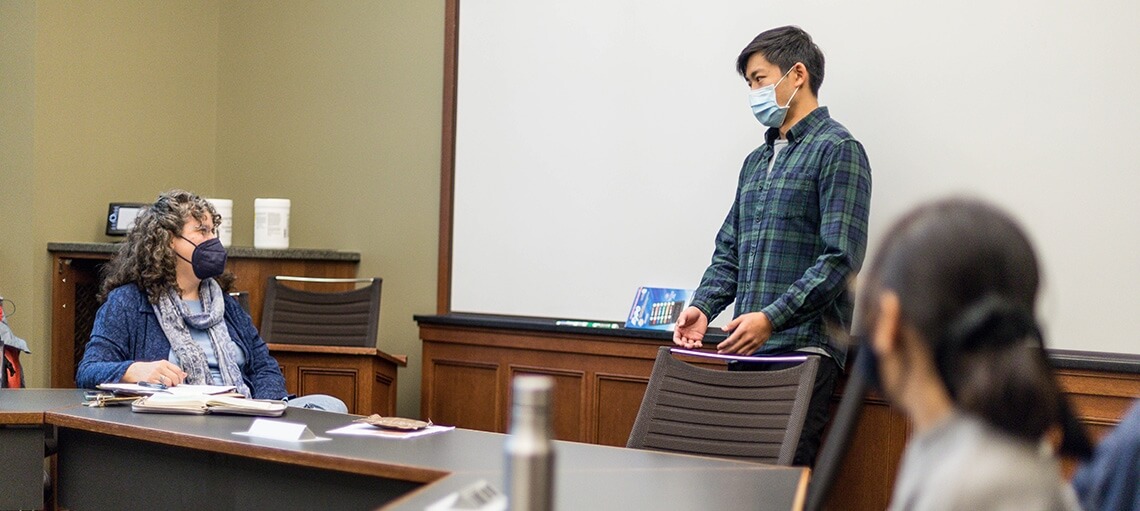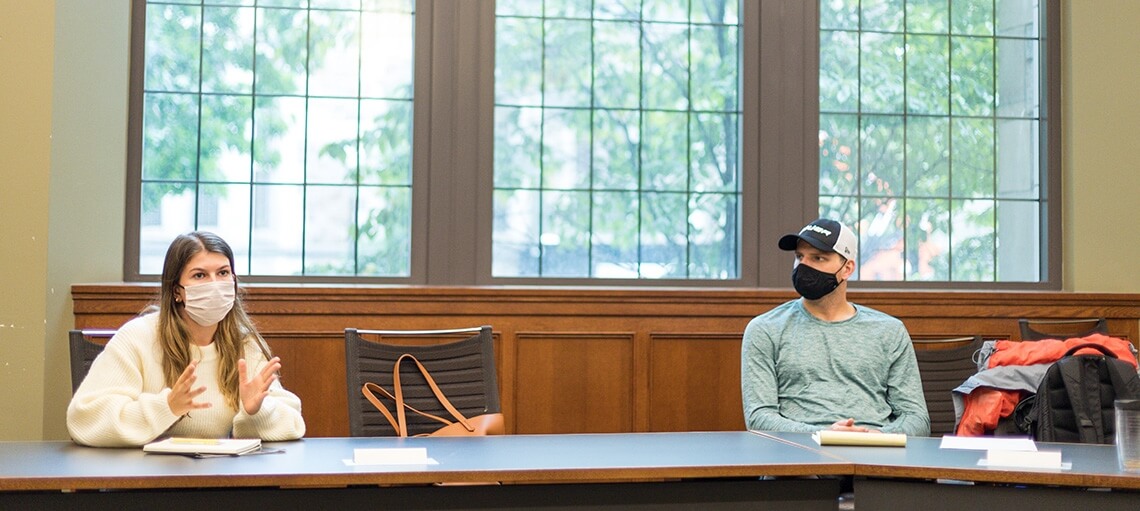Since our establishment in 2007, we have helped low-income people tackle and resolve issues with the Internal Revenue Service. We offer tax controversy representation and free tax help to low-income individuals. Our clients typically navigate multiple challenges, such as poverty, disability, domestic violence, housing insecurity, literacy, and identity theft, and are overwhelmed by the intricacies of tax law and procedure.
About the Low Income Taxpayer Clinic
We fight for the IRS to assess no more than the correct amount of tax, and for our clients to pay no more than they can afford. We also create outreach programs to serve people who speak English as a second language and to help low-income people understand tax issues that may affect them.
We are funded by the University of Michigan Law School and the Taxpayer Advocate Service of the Internal Revenue Service. Although the Low Income Taxpayer Clinic receives funding from the IRS, the clinic and its employees and volunteers are not affiliated with the IRS. Rather, the program is designed to provide low-income taxpayers with proper representation to achieve a correct outcome in an IRS dispute, regardless of the taxpayer’s ability to pay for representation.
In accordance with federal law, the LITC does not discriminate against taxpayers on the basis of race, color, national origin, disability, sex, or age. People with a disability may request a reasonable accommodation and people with limited English proficiency may request language assistance to access service.
What We Do
We help low-income taxpayers with the following issues when the amount in dispute is $50,000 or less per tax year:
- IRS Notices, including Notices of Intent to Lien or Levy and Notices of Deficiency
- Petitions to the United States Tax Court
- IRS Liens and Levies
- Offers in Compromise
- Installment Agreements
- Innocent Spouse Relief
- Injured Spouse Relief
- Collection Due Process Hearings and Appeals Conferences
- Tax Audits
- Earned Income Tax Credit Eligibility and Denials
- Individual Taxpayer Identification Number (ITIN) Issues
If you wish to contact us for possible representation, please complete a client application or contact us at 734.936.3535.
Information for Students
It is daunting and often impossible for our clients to face the intricacies of the tax code on their own, so our student attorneys help to educate individuals and advocate on their behalf before the IRS or the United States Tax Court.
In the process of securing the best possible result for their clients, LITC student attorneys interview clients, gather and analyze relevant information, perform legal research, provide advice, and negotiate with IRS agents. Representing clients on a variety of issues, such as tax collection disputes, audits, IRS notices, Earned Income Tax Credit eligibility, and innocent spouse relief, student attorneys build vital interpersonal, legal writing, and critical thinking skills.
Moreover, the intimate size of the clinic—six students, one supervising attorney, and one administrator—allows students to encounter a unique mentorship experience, as well as cultivate the independence and confidence to provide excellent legal service for each specific case.
-
Who should apply?
Those interested in the compelling intersection of tax, poverty, domestic violence, disability, and immigration legal services should consider the Low Income Taxpayer Clinic. As the clinic grows, students may also have the opportunity for transactional tax work and business development.
-
How do I enroll?
Second- and third-year law students may register for the four-credit clinic using the Law School’s computerized registration system. Though there are no formal prerequisites for the course, it is useful to have taken Taxation of Individual Income and/or courses in estate planning, such as Tax Planning for Real Estate Transactions, Nuts and Bolts of Estate Planning, and Fundamentals of Real Estate.
Those interested in the clinic’s growing corporate component may consider taking Corporate Tax and Taxation of Business Enterprises.
-
How is the clinic graded?
First-semester students receive four credits for the clinic and are graded. Students who choose to continue and are accepted for a second semester receive three credits and are graded. Students are required to work eight office hours each week.
Information for Clients
-
Who can become a client?
You may be eligible for representation if you meet both of the following requirements:
- The amount the IRS says you owe is $50,000 per tax year or less.
- Your household’s total income does not exceed 250 percent of the federal poverty guidelines.
2025 Federal Poverty Guidelines
(48 Contiguous States and DC)
1 person in household: $39,125 total income
2 people in household: $52,875 total income
3 people in household: $66,625 total income
4 people in household: $80,375 total income
5 people in household: $94,125 total income
6 people in household: $107,875 total income
7 people in household: $121,625 total income
8 people in household: $135,375 total income
-
How can I become a client?
Please note that you will not automatically become a client by submitting this form. After receiving your completed form, the clinic will contact you to set up an initial consultation meeting. If we accept your case after the consultation meeting, you will receive a retainer agreement. This agreement will outline the terms of services we will provide. Your representation will begin after we receive the signed copy of your retainer agreement.
If you do not have access to a computer, or would prefer to give your information over the phone, please call us at 734.936.3535.
-
How much does it cost?
We do not charge clients for our services. However, if you are accepted as a client, you may need to pay for expenses incurred during representation, such as filing fees, court costs, transcript costs, copying, and mailing charges.
-
Nondiscrimination Policy Statement
The University of Michigan, as an equal opportunity/affirmative action employer, complies with all applicable federal and state laws regarding nondiscrimination and affirmative action. The University of Michigan is committed to a policy of equal opportunity for all persons and does not discriminate on the basis of race, color, national origin, age, marital status, sex, sexual orientation, gender identity, gender expression, disability, religion, height, weight, or veteran status in employment, educational programs and activities, and admissions.
Inquiries or complaints may be addressed to the Equity, Civil Rights, and Title IX Office, 2072 Administrative Services Building, Ann Arbor, Michigan 48109-1432, 734-763-0235, TTY 734-647-1388, [email protected]. For other University of Michigan information call 734-764-1817.
You may also contact the Civil Rights Division at [email protected] or Internal Revenue Service, Room 2413, 1111 Constitution Avenue NW, Washington, DC 20224.
Speaker Service
If you would like a staff member to speak to your organization about particular tax topics, please contact us at 734.936.3535 or [email protected]. In the past, we have presented to groups and organizations on a variety of topics, such as:
- Domestic Violence and Taxes
- Cancellation of Debt Income
- Earned Income Tax Credit
- Basic Tax Literacy






